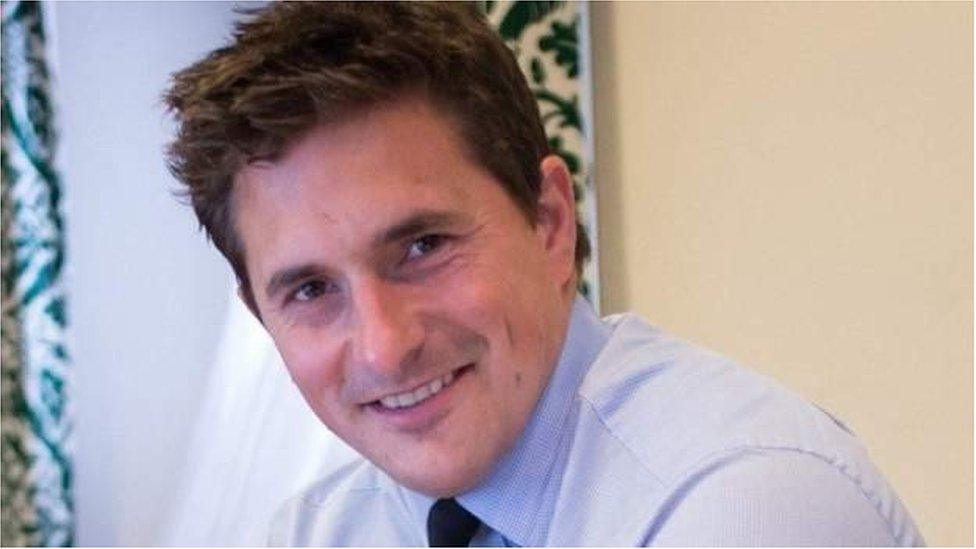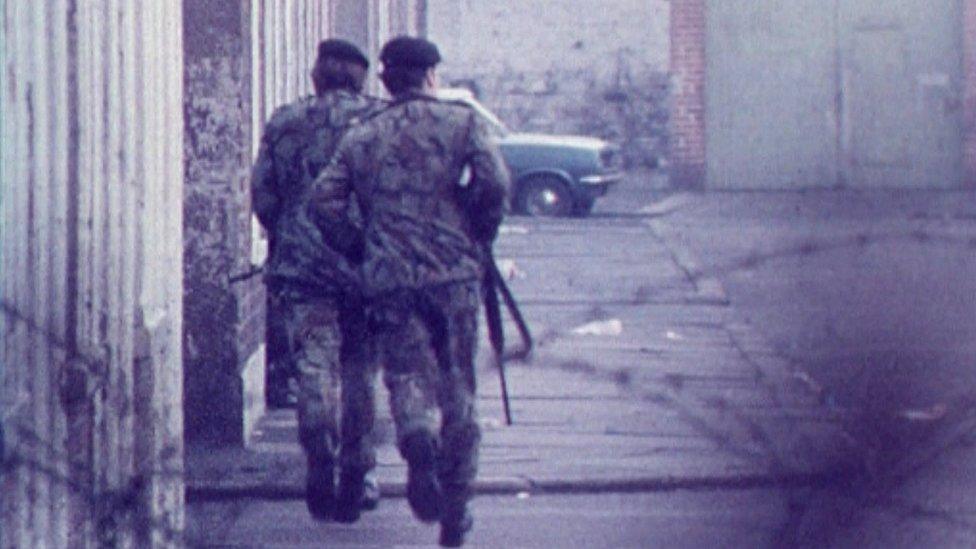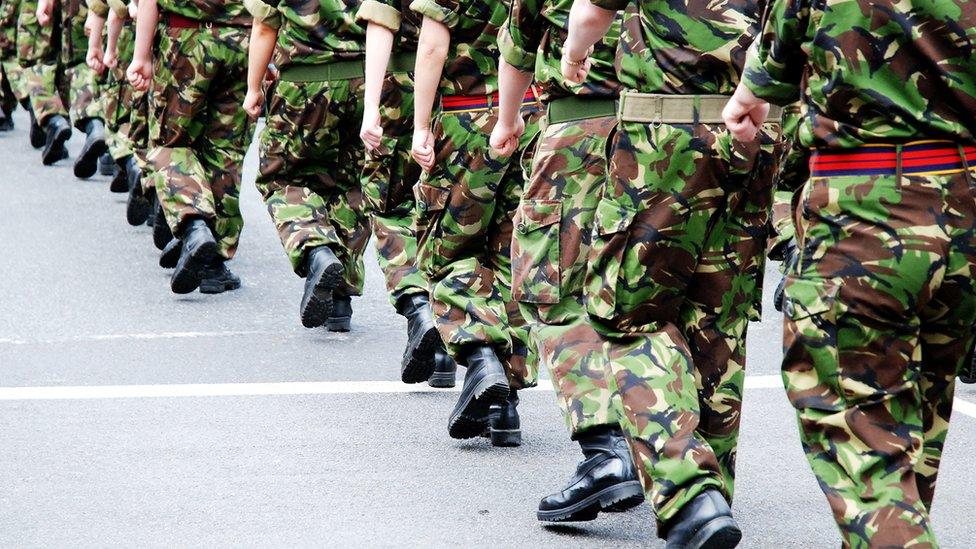NI Troubles statute of limitations 'may need to apply to all'
- Published

Johnny Mercer left the government over the treatment of veterans
A former veterans minister has said he accepts any statute of limitations for alleged crimes during Northern Ireland's Troubles may need to apply to paramilitaries as well as soldiers.
Johnny Mercer left the government over the treatment of veterans.
He said Boris Johnson failed to deliver on promises to protect ex-soldiers who served in NI from prosecution.
On Monday he told the BBC he was open to a statute of limitations also applying to paramilitaries.
The UK government has previously said it would not support a statute of limitations because international law meant it would need to be extended for former paramilitaries as well as ex-soldiers.
Earlier in April, Northern Ireland's Veterans Commissioner Danny Kinahan suggested if a statute of limitations was introduced it would "have to be for everyone".
Asked about those comments, Mr Mercer told the BBC's Good Morning Ulster programme: "If that is the way forward, if that is the only way that is going to prevent the injustices from today, then yes we need to look at that."
He added: "I'm shoulder to shoulder on Danny Kinahan on this stuff.
"We have to accept that some of the provisions that have been made for participants in the Troubles, who are not in the security forces, has led us to where we are today whereby many of them are not in prison and not doing time for their crimes.
"The Good Friday Agreement which delivered peace does seem to have this hole in it whereby soldiers can be subjected to perpetual reinvestigation and here we are today 50 years later and cases are in court.
"There is no straightforward solution to this. For me we have to find a way forward with this and if that is accepting some of what Danny is saying then clearly I would support that."
He added that he did not believe there was any "moral equivalence" between soldiers and paramilitaries.
Mr Mercer's resignation from the government came ahead of the Overseas Operations Bill returning to the Commons.
The new law is designed to protect veterans from unfounded prosecutions but will only cover conflicts abroad such as the wars in Iraq and Afghanistan.

British soldiers who served in Northern Ireland will be excluded from the bill, which Mr Mercer previously called a "red line" for him staying in government.
Mr Mercer added: "There are solutions available. What I am determined to stop is the unfair pursuit and the seemingly sort of unfair in one side, prosecution of these individuals. Because at the end of the day, they were young men doing their duties.
"I am hopeful that by raising the profile of these cases and campaigning hard, that we will see something come forward to bring some sort of clarity and some sort of peace to this process.
"I recognise how difficult it is out here. It's incredibly difficult. The conflict was an incredibly tough, unkind, unpleasant horrible time to go through on all sides.
"My heart goes out to the families, both of those who are going through this process but of course to those who were killed as well. It's a horrible time.
"The reality is, we have to at some point look towards the future, if we are going to get some sort of peace and truth and reconciliation."
The prime minister's official spokesman previously said details new legislation for Northern Ireland would be announced "in the coming weeks".
"There is more to be done on the issue of the Northern Ireland legacy and we are committed to making progress on this as quickly as possible," he added.
"We are engaging with Northern Ireland parties and the community in Northern Ireland, including victims' groups as well as the Irish government, on the way forward."
'Must apply equally'
A spokesperson for the Irish Department of Foreign Affairs said the Irish government's position remained that "there should be effective investigations into all Troubles-related deaths, regardless of the perpetrator."
They aded: The rule of law and the protections afforded by the European Convention on Human Rights must apply equally to everyone and must be upheld, and this principle is at the core of the Stormont House framework.
The Government remains ready to engage and work with the British Government and the parties to the Northern Ireland Executive in partnership on this very important issue.
Only through a collective approach can we hope to deal with these issues comprehensively and fairly.
Related topics
- Published21 April 2021

- Published20 April 2021

- Published21 April 2021
